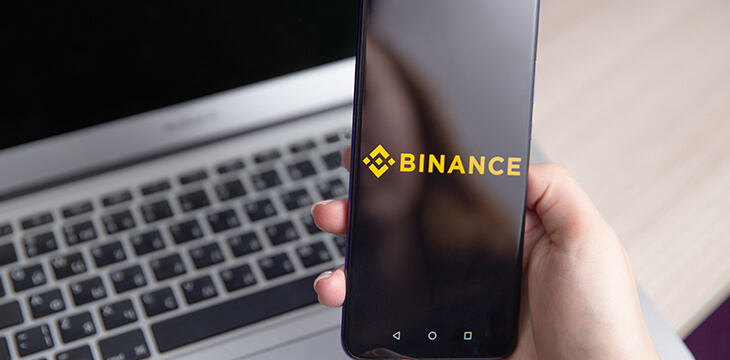|
Getting your Trinity Audio player ready...
|
Regulatory walls have been closing on Binance. Now caught in a chokehold by regulators from Malaysia to the U.K. and even the Cayman Islands, the exchange is attempting to play catch up. It has now tightened its customer identification programs, but some major investors had already pulled out of a $100 million funding round for its U.S. subsidiary.
Binance was founded in July 2017, years after the likes of Coinbase, Huobi, OKEx, Bitstamp and Bithumb had launched. However, CEO and founder Changpeng Zhao, was aggressive and listed every other token, propelling the exchange to the top.
Way before global regulators had started becoming suspicious of Binance’s activities, CoinGeek’s Crypto Crime Cartel series had called out the exchange for its lack of anti-money laundering checks. Forbes would later obtain documents that showed that breaking financial laws was central to Binance’s actual business strategy, for which it got sued but the lawsuit was later dropped.
And now, Binance is trying to catch up with regulations.
Tightening of AML checks (after ignoring them for 4 years)
The latest from Binance is that it’s now tightening its anti-money laundering checks. In a recent announcement, the exchange revealed that it would require all its users to complete Intermediate Verification. The exchange claimed that the move is part of an ever-ongoing review of its products and services to “determine changes and improvements in light of evolving global compliance standards.”
Intermediate Verification includes users having to submit government-issued ID and undergoing facial verification. Many exchanges, especially the bigger ones serving users globally, already have this KYC requirements, with Coinbase and Gemini among the prime examples. Although there are those that are still flouting these laws like Kraken, whose CEO has no problem admitting to bank fraud on social media.
“Actions speak louder than words,” Changpeng Zhao stated on Twitter while announcing the new requirements.
In a separate statement, the Binance CEO added, “We aim to work more collaboratively with policy-makers to improve global standards and discourage bad actors.”
This move is nowhere near enough to appease regulators, legal experts believe. Alireza Siadat, a partner at Annerton LLP in Frankfurt is one of those casting doubt on whether this in itself is near enough to push regulatory crackdown back.
“It is a nice marketing statement, but from the regulators’ perspective, this is not enough,” he told Reuters.
He added, “Since they are doing it on a voluntarily basis, regulators do not know whether they have the authority to supervise the identity check, and no one can look whether they are doing it properly.”
Investors pull out of $100M funding round for Binance US
All the mayhem around the world’s largest exchange has seen it lose customers, halt products such as derivatives in Hong Kong and lose some of its top leaders. Now, the mayhem has seen it lose out on funding to the tune of over $100 million for its U.S. subsidiary.
The cracks first showed on August 6 when Brian Brooks resigned as the Binance.US CEO. Brooks had joined the exchange three months prior. He had joined following a brief stint as the Acting Comptroller of the Currency, a post in which he endeared himself to the digital currency community through a series of actions that gave financial institutions clarity on how to handle digital currencies.
Greetings #crypto community. Letting you all know that I have resigned as CEO of @BinanceUS . Despite differences over strategic direction, I wish my former colleagues much success. Exciting new things to come!
— Brian Brooks (@BrianBrooksUS) August 6, 2021
In an accompanying statement, Brooks, who has also had a stint as the head of compliance at Coinbase, revealed that he had departed due to strategic differences with the Binance U.S leadership. CZ assured users that the “transition will not impact Binance.US customers in any way.”
From @BinanceUS chairman of the board @cz_binance https://t.co/uYcSjfRNOX pic.twitter.com/4BFuHQQz2V
— Binance.US 🇺🇸 (@BinanceUS) August 6, 2021
Now, more details have emerged over Brooks’ departure, and they are tied to regulatory pressure and a botched attempt to raise $100 million.
According to the New York Times, Brooks was leading a fundraising process that sought to bring in $100 million. He was in talks with GreatPoint Ventures, a VC firm led by Ray Lane. Speaking to NYT, Lane revealed that though his firm had never made a digital currency investment, he had a lot of faith in Brooks and was ready to participate in the funding round.
Brooks had assured them that the U.S. subsidiary would be fully independent from the global exchange. However, this was more of an ‘on-paper-promise,’ especially given that CZ reportedly owns 90% of Binance.US. Moreover, the exchange’s board of directors consists of CZ, the acting CEO and Gin Chao, the Binance global chief strategy officer. What tipped over the scales against the investment for GreatPoint, however, was U.S. regulators going after the exchange.
Binance went to great lengths to convince GreatPoint, and other investors like SoftBank, that it was getting on regulators’ good books. It even hired Manuel Alvarez, the former top banking regulator for California as its chief administrative officer. But it was too little too late. The investors had already been spooked.
Immediately the investors pulled out, Alvarez and Brooks resigned.
Binance.US is still adamant that it will go on with its fundraising as planned and even follow Coinbase down the IPO route.
“Fund-raising and engaging potential investors is an essential part of Binance.US’s long-term strategy. It’s just a matter of time,” Hazel Watts, a spokesperson for Binance stated.
Follow CoinGeek’s Crypto Crime Cartel series, which delves into the stream of groups—a from BitMEX to Binance, Bitcoin.com, Blockstream, ShapeShift, Coinbase, Ripple and Ethereum—who have co-opted the digital asset revolution and turned the industry into a minefield for naïve (and even experienced) players in the market.

 02-15-2026
02-15-2026 




